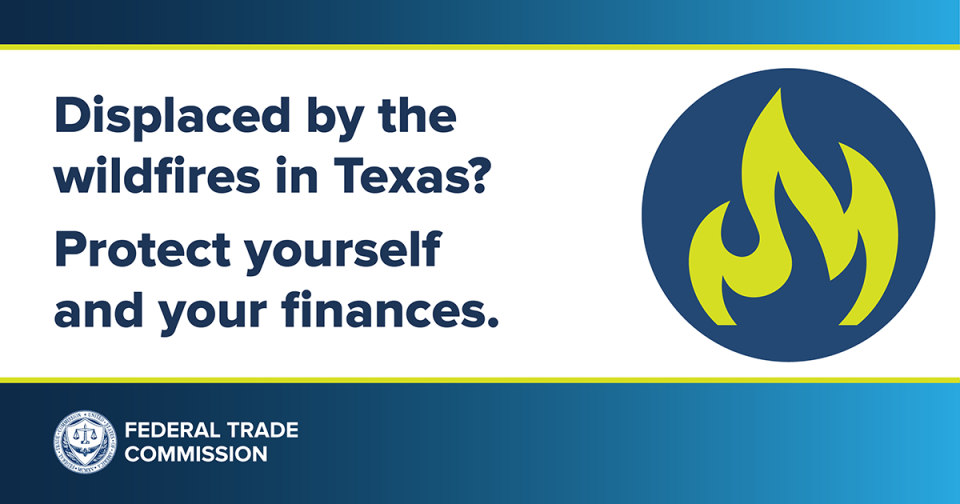Recovering from what is now the largest wildfire in Texas history will be a long process. If you’ve been displaced by the fire, or your home or business was damaged, you’re probably trying to figure out what to do next. Here’s some advice to help you get started.
- Find out what your home, business, health, or other insurance policies will pay for if you had to evacuate and can’t access your home or business. Some will cover costs for temporary shelter, clothing, and other items.
- Replace lost or damaged legal documents you misplaced or left behind. This chart will help you if you’re unsure of where to go for what.
- Contact creditors, landlords, and utilities right away. Explain how the fire has affected you. In times of disaster, they may be willing to defer your payments, waive late fees, and offer other ways to help you regain your financial stability.
When you’re ready to focus on rebuilding or making repairs to your home or business, start by knowing how to spot the scammers:
- Don’t hire anyone who shows up claiming to offer recovery services but demands cash or advance payments. That’s a scam.
- Never pay to get government assistance. Anyone who wants you to pay to get money or a grant from FEMA is a scammer. Instead, download the FEMA Mobile App to get alerts and information.
- Learn more about how to spot and avoid other disaster-related scams at ftc.gov/WeatherEmergencies.
Spot a scam? Tell the FTC at ReportFraud.ftc.gov.

